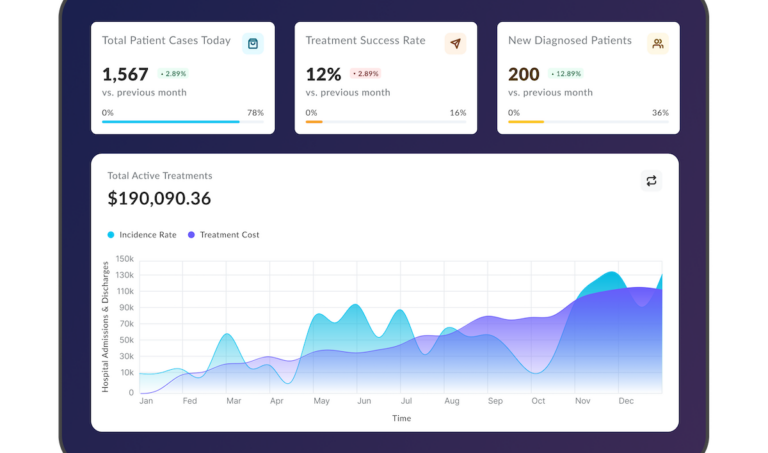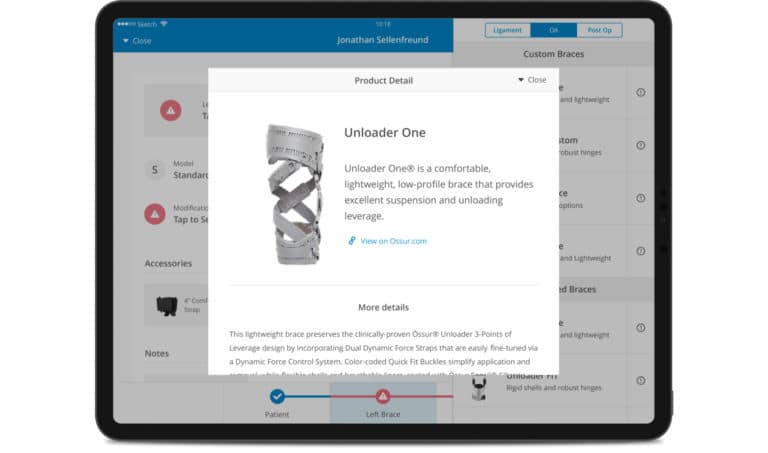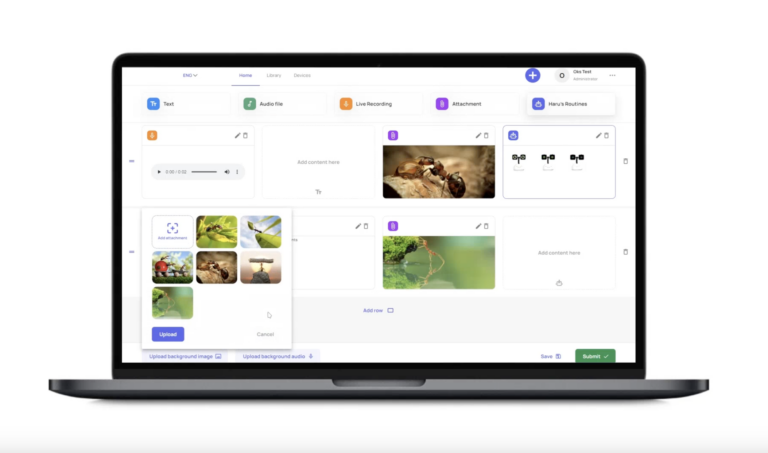Changing the Way We Pay: Top 8 Open Banking Payment Solutions
Updated: November 1, 2021
Open banking has revolutionized the financial services industry by introducing a brand new way to manage finances. It allows customers to control their data better and take advantage of a new generation of financial products while turning traditional offline banks into feature-rich service platforms.
At Relevant, we have proven expertise in fintech software development. If you’re considering developing a new financial services app or just want the lowdown on what this new banking trend has to offer, this article is for you. In it, we’ll explain the basics of open banking and describe eight open banking solutions that are making waves in the market.

We provide companies with senior tech talent and product development expertise to build world-class software. Let's talk about how we can help you.
Contact usTable of Contents
What is open banking, and how does it change the payment landscape?
Open banking is a practice that allows licensed third-party providers (TPPs) to access customer banking data through application programming interfaces (APIs). A bank can share a customer’s data only if the customer provides consent to such actions. Customers can also control what types of data can be accessed by a TPP and for how long.
How open banking works
In general, TPPs interact with banks on behalf of bank customers to provide the following services:
- Account Information Services (AIS)—for displaying and consolidating information such as balance and transaction history from a customer’s bank accounts.
- Payment Initiation Services (PIS)—for enabling online payments without the need to insert credit card details manually.
To make things clearer, consider the example of a money manager app. Without open banking, the app user has to interact with every bank they have an account with directly (e.g., by logging into the account and copying over the required information) and then insert the relevant data into the app.
With open banking, things get much easier. The user just needs to give the TPP permission to access their bank data. The TPP then interacts with all banks via open banking APIs, retrieving information from all the user’s accounts on their behalf. As a result, the user can see their consolidated transaction history, account balances, and spending in a few clicks.
Open banking payments are based on similar logic. When merchants cooperate with PIS providers, shoppers don’t need to enter personal card details manually to pay for a service or product online. They can just click on a payment link or scan a QR code on a merchant’s website, connect to their bank app, and confirm payment. This way, a merchant doesn’t get access to the customer’s bank information.
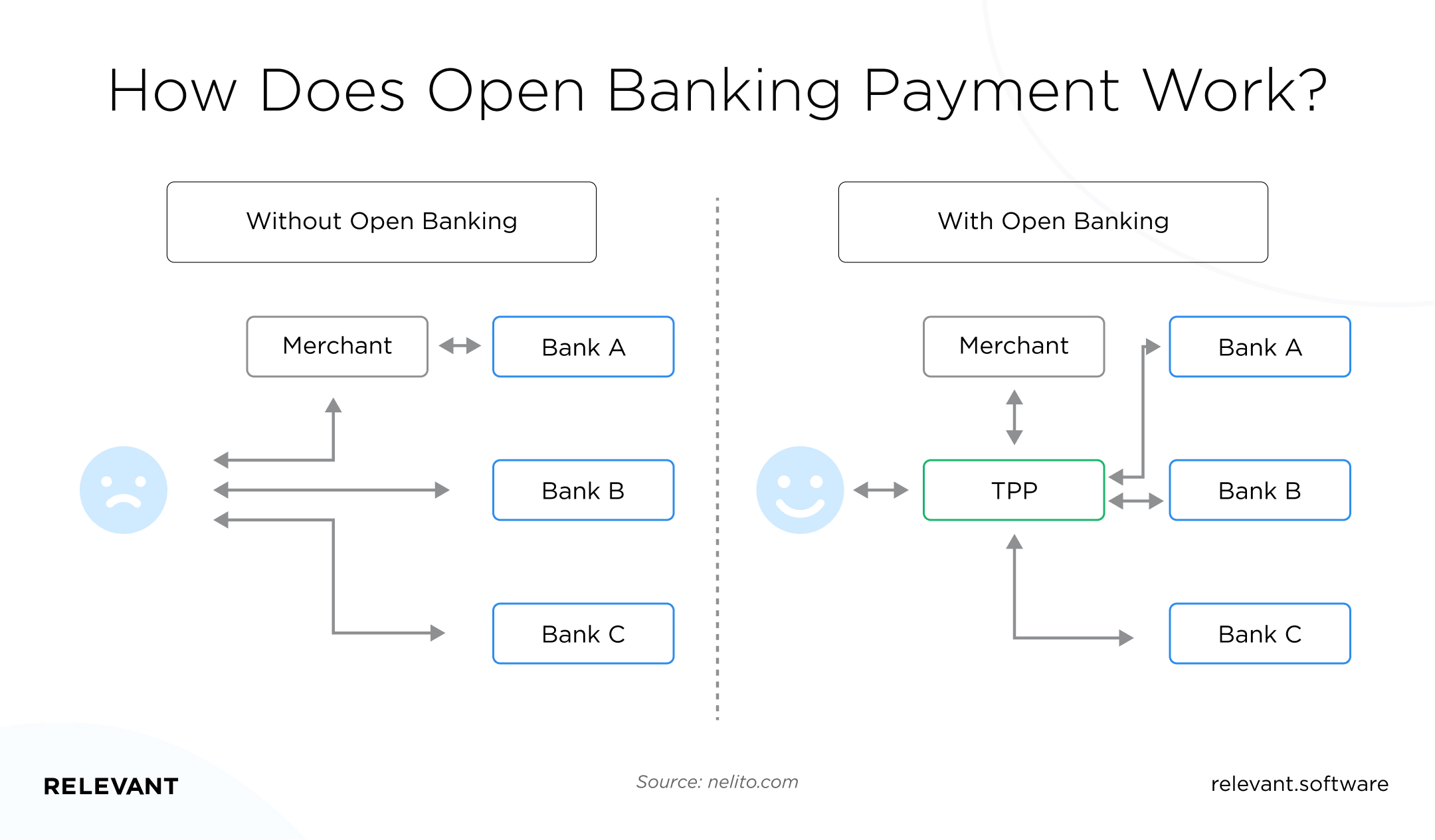
The impact of open banking on the finance industry
Open banking has already started to reshape the payment landscape, and the global pandemic has only accelerated its adoption. The model is spreading fast to more and more countries worldwide, boosting competition in the fintech market.
Statistics show that the number of open banking users worldwide is expected to grow at an average annual rate of nearly 50% between 2020 and 2024, with the European market being the largest. In the UK alone, more than one million customers have already shared their bank details with trusted third-party providers.
Yet, customers are not the only ones who stand to benefit from open banking. Research from The Economist suggests that adopting open banking could help banks to leverage their internal data since they would need to upgrade or even rebuild their legacy systems. About 45% of survey respondents said that they’ve already started transforming their existing business models into digital ecosystems, and 29% stated that open banking is part of their bank’s innovation strategy.
One of the best things about open banking is that any fintech solution company or bank can use it to create new products and strengthen customer relationships.
Let’s look at the advantages open banking can offer in more detail.
Key benefits of open banking
Open banking has the potential to revitalize the financial sector with a range of benefits for customers, banks, and businesses:
- Easy payments. Using open banking payment services, customers can easily make direct and seamless payments from their bank account, without entering card details. All they need to do is perform one- or two-step authentication through a banking app or website and confirm the payment.
- New services and products. Open banking opens up a lot of new possibilities and potential for product innovation. For consumers, this means more opportunities (think of open banking loans) and easier financial operations, while businesses get access to new markets.
- A culture of innovation. Open banking encourages banks to upgrade their digital infrastructure so that they can securely share customer data. What’s more, modern payment technology helps banks to better structure their data and improve its internal use.
- Better control of financial data for customers. With traditional banking, a customer’s control over their account was limited to what their banking app or website offered. Open banking gives customers broader opportunities for money management and better control over their financial data.
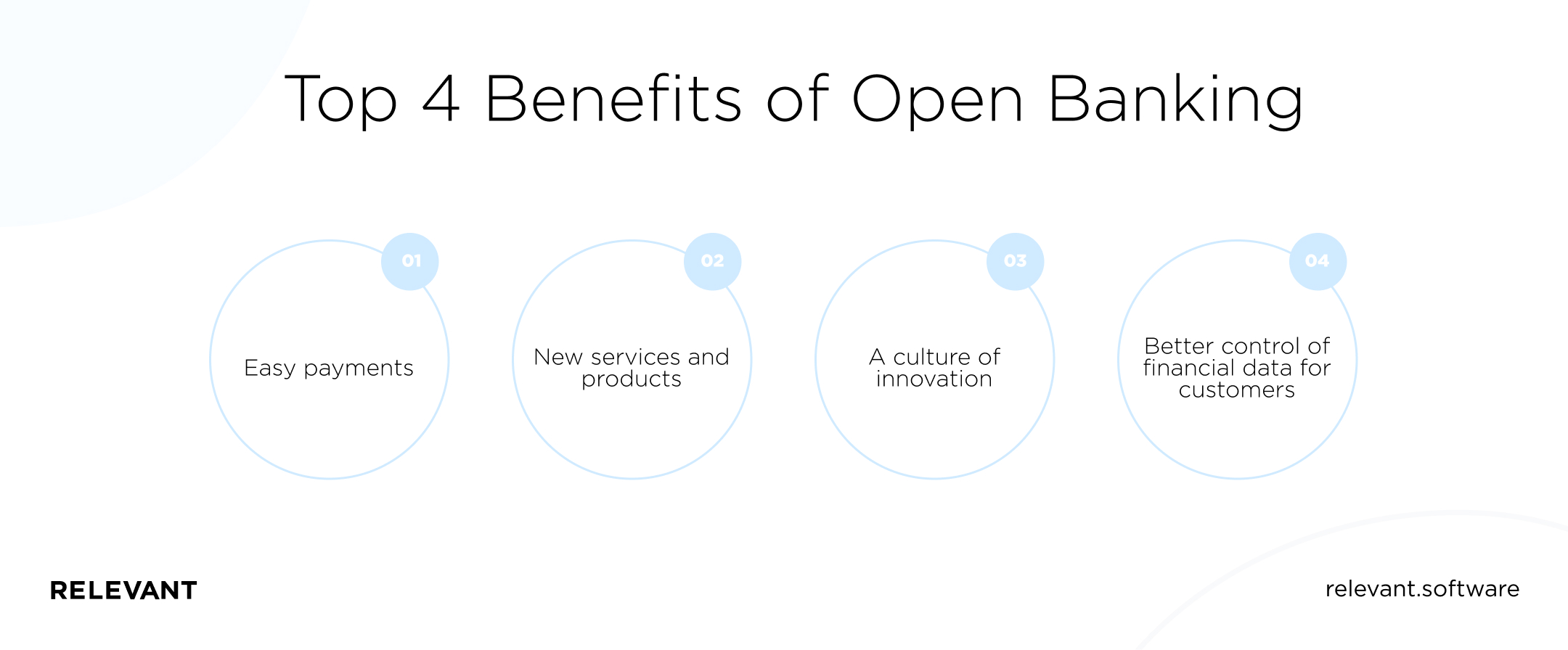
Now that we’ve covered what open banking is, how it’s changing the industry, and what benefits it brings to the table, let’s look at some of the most promising open banking payment solutions on the market today.
Top 8 open banking payment solutions
The number of banks and fintech companies that are embracing open banking is growing steadily. Recent research from Accenture shows that 90% of banking institutions believe open banking could boost their organic growth by up to 10%. It’s, therefore, no surprise that the online payment market has its own share of innovative leaders. Here are some of them.
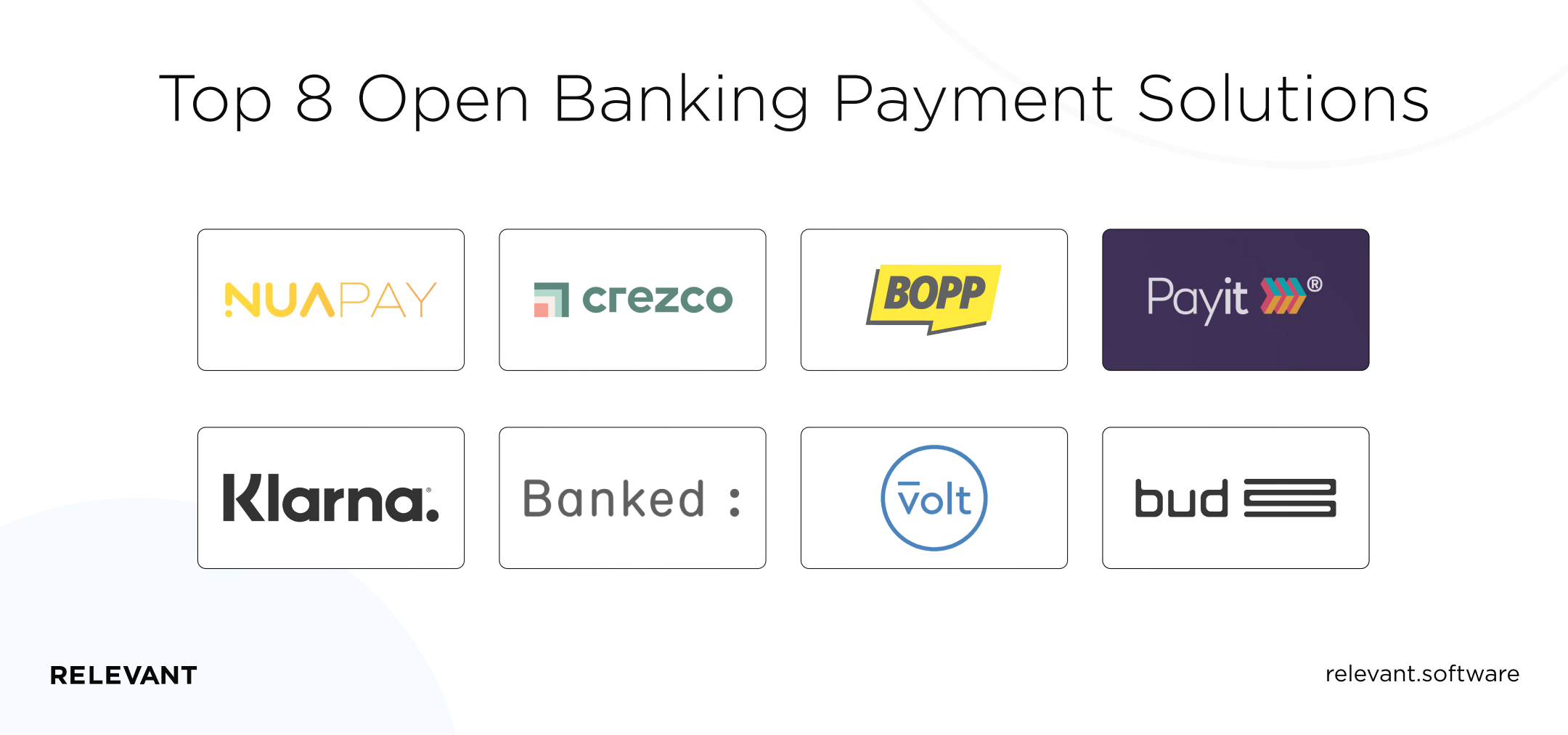
1. Nuapay
Nuapay is an Irish open banking pioneer that aims to simplify the management of online payments. Nuapay offers fully integrated settlement services by connecting its customers with thousands of banks across 34 countries. The payment environment has also received industry awards such as Best Online Payments Solution–Merchant in 2020 and the Best Use of Open Banking in the Merchant Payments Ecosystem in 2021.
2. Crezco
Crezco sounds like a dream come true for its absence of processing fees. It’s an open banking payment solution that provides UK-based businesses with a fast, secure, and cost-effective alternative to existing card payment schemes. As well as streamlining online payments, Crezco offers secure and contactless bank transfers: customers only need to scan a QR code and confirm payment. Crezco works with all major UK and European banks.
3. BOPP
The brainchild of London-based fintech Agitate, BOPP uses open banking to remove the need for cards and facilitate immediate, secure payments between bank accounts. It has a quick sign-up process and an easy dashboard for business use and supports fast QR payments. BOPP is entirely free for personal use, while for businesses, it takes a flat monthly fee of £10 for all transactions. BOPP also offers an optional mobile payment solution for consumers.
4. Payit
Payit is one of the leading payment initiation services in the UK by transaction volume. The service is provided by NatWest bank, but its customers don’t need a NatWest account to be able to use it. Since its launch, Payit has processed over 100,000 transactions totaling over £15 million. What makes it stand out from the crowd is its seamless refund system that doesn’t require merchants to know or store customer account information.
5. Klarna
Klarna is one of the best online payment services. It’s best known as “buy now pay later” software, which offers shoppers interest-free financing on retail purchases over a series of installments. It has over 200,000 retail partners, including giants like Samsung, Nike, ASOS, H&M, IKEA, and AliExpress.
Klarna’s open banking platform is just one of its services. Klarna APIs allow businesses to create fintech products ranging from expense-splitting apps to robo advisors.
What’s more, with Klarna’s white-label solution, PSD2-licensed third-party providers can request and receive bank data. But to integrate Klarna API into their service, they usually need to hire a development team.
6. Banked
Banked is a London-based open banking startup that enables account-to-account payments at checkout. It allows merchants to offer a direct payment option that bypasses entering credit card details: all customers need to do is go through the authentication process and proceed with payment. Banked works best for small companies where high processing payment fees can negatively influence business since it charges only 0.1% to process payments instead of the 1-4% charge typically seen across the market.
7. Volt
Volt’s open payments gateway raised $23.5 million in a Series A funding round and now connects over 5,000 banks across the UK and EU in a market-leading payment grid. It offers secure payment solutions for customers and helps merchants reduce the cost and complexity of point-of-sale transactions.
8. Bud
Bud is a UK startup that aims to connect customers to financial services and products. Bud has many products that serve both consumers and businesses. For instance, Bud users can seamlessly manage all their bank accounts in one view while also tracking their carbon footprint and making a purpose-driven, sustainable impact with their money.
What’s more, Bud’s data intelligence capabilities help users identify their spending on subscription products like Netflix and allow them to manage their subscriptions from inside their primary bank apps.
This list covers just a few exciting examples of payment solutions companies that have harnessed the potential of open banking. New players are constantly arriving in the market, enhancing payment services and our daily financial routines.
There’s no doubt that open banking is here to stay. The main question is, what does its future look like?
Will open banking payments go mainstream?
Open banking is only just kicking into gear. The concept has created a significant market opportunity and has the potential to change the competitive landscape of financial services. Yet, despite the many benefits open banking offers, there are also significant challenges to its wider adoption.
One major hurdle is consumer perception. For example, Deloitte’s consumer research reveals a strong demand for new and improved banking services among a technologically savvy population. However, customers can also be reluctant to share financial data unless they’re sure that it is handled securely. This makes consumer education and security compliance a priority for anyone wanting to enter the market.
Another barrier to open banking adoption lies in complex, legacy IT systems at many leading banks. For open banking to succeed, banks must embrace a new end-to-end digital architecture. This requires a significant investment of time, effort, and financial resources, which naturally slows down the process.
Finally, big players like Mastercard and Visa are also considered a threat to the open banking ecosystem. It’s unlikely that they’ll buy up all the open banking startups, but they’ll probably want to keep their place among the industry’s innovative payment solutions.
Despite all these challenges, the future of open banking is definitely “open.” The movement just needs time to fully evolve on a global scale—just like any other fundamental change.
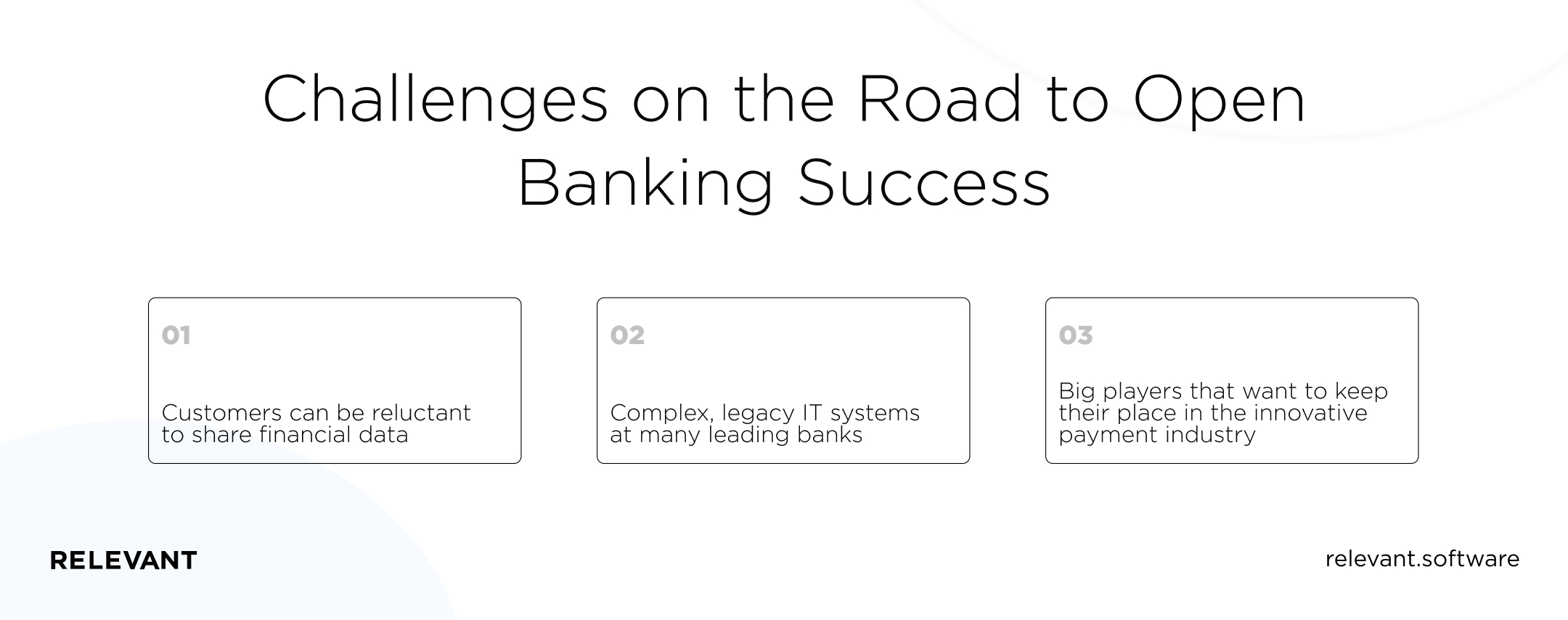
Summing it up
Open banking is no longer a technology of the future. It’s already with us. And it will continue to evolve as it connects more and more banks and fintech businesses, increases competition, and accelerates the development of new products and services.
Choosing the right software development company to build your open banking solution isn’t easy. Before hiring app developers, you should pay attention to their expertise and the technologies they use, as well as successful cases in their portfolio.
At Relevant, we’re ready to help you with fintech software development and open banking adoption. Our experts can:
- Advise you on the open banking implementation and regulatory compliance
- Create the UI/UX design for your online payment solution
- Pick the most relevant tool stack for your needs
- Help you build your own software payment solution or embed a payment gateway into your application
Whether you’re planning to develop your own fintech app or platform, add open banking to your services, or just want to receive a consultation, contact us. We’ll be happy to help.
FAQs
Our core services:
Do you want a price estimate for your project?
Do you know that we helped 200+ companies build web/mobile apps and scale dev teams?
Let's talk about your engineering needs.
Write to us